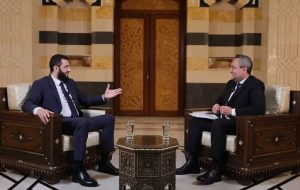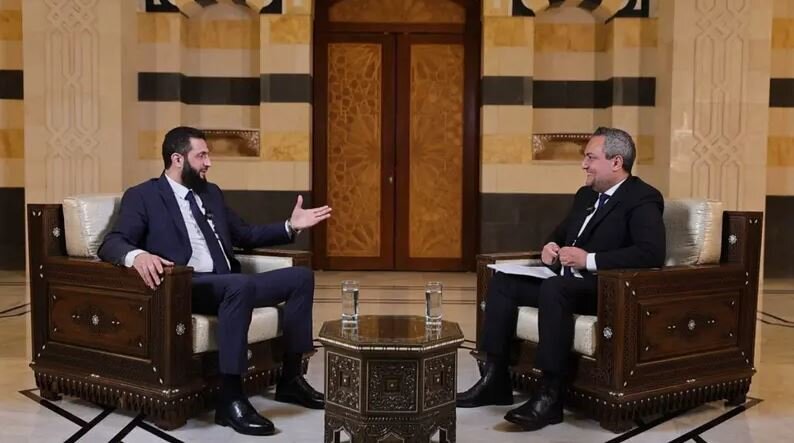Al-Jolani’s pursuit of Israeli affection
TEHRAN – The leader of Hayat Tahrir al-Sham (HTS), the group that led the offensive toppling President Bashar al-Assad’s government less than a month ago, has asserted that his forces averted a regional conflict that could have resulted in direct combat between Israeli troops and Iraqi and Iranian forces. In an interview with Saudi media,


TEHRAN – The leader of Hayat Tahrir al-Sham (HTS), the group that led the offensive toppling President Bashar al-Assad’s government less than a month ago, has asserted that his forces averted a regional conflict that could have resulted in direct combat between Israeli troops and Iraqi and Iranian forces.
In an interview with Saudi media, the terrorist leader turned politician said Israel was planning to invade Syria before the fall of Assad. “If Israeli forces had entered Syria, then Iranians would have brought in Iraqis. The chain of events would have eventually affected Turkey,” he said, without mentioning that Israel appears to have proceeded with the alleged plan, as it has occupied new areas in the Arab country since Assad’s departure. “Then Russia and America would have entered a war as well, and the situation could become extremely dangerous for the region,” he said, apparently suggesting that the overthrow of Assad at the hands of HTS-led factions prevented an all-out regional war.
Abu Mohammad al-Jolani’s remarks follow almost three weeks of incessant airstrikes by the Israeli regime, which have destroyed about 90% of Syria’s military infrastructure and injured scores of civilians in the process.
Al-Jolani attempting to become relevant
Recent statements by al-Jolani are being interpreted as a bid for legitimacy in the eyes of Western powers and their ally Israel, according to West Asia analyst Mohammad Reza Moradi.
Moradi, speaking to the Tehran Times, dismissed al-Jolani’s claim as baseless. “What he says holds no water. Israel was never planning to launch an invasion into Syria as it did after the departure of Assad,” Moradi stated, adding, “These remarks, however, are part of a message the HTS leader is trying to send to Washington and its allies. That he is influential and that he is willing to cooperate with Americans and Israelis.”
However, al-Jolani’s ambition is likely to face considerable hurdles, both internally and externally. The HTS Leader’s recent experiences governing the Idlib region have likely highlighted the challenges associated with leadership. “Al-Jolani led a semi-government in Idlib from 2017 to 2024. While the region was better off financially due to direct aid from Turkey, it was characterized by heavy-handed and extremist policies. There were routine protests taking place in Idlib which called on al-Jolani to step down.”
Al-Jolani appears to be applying similar tactics in Damascus, where his forces have expanded their influence. He recently took the first step toward becoming a dictator by announcing a three-to-four-year delay for elections in Syria. Further cementing his authority, he has appointed only prominent HTS members to key official positions. Meanwhile, his forces are engaged in the targeted killing of Alawites and other opponents throughout Syria.
Besides his strenuous governance in Idlib, Al-Jolani is also affiliated with the time Daesh controlled swathes of territories in Syria in an era that marked some of the darkest days of history. All this makes it all the more challenging for the HTS leader to gain national recognition.
Moradi also doubts that the West will embrace the HTS leader, citing the complex landscape of Syrian politics, where other U.S.-backed groups are actively opposed to the HTS. “I don’t think he would gain the support he wants from the West either, as other groups the U.S. supports in Syria are averse to the HTS, like the Kurdish militants,” he noted.
